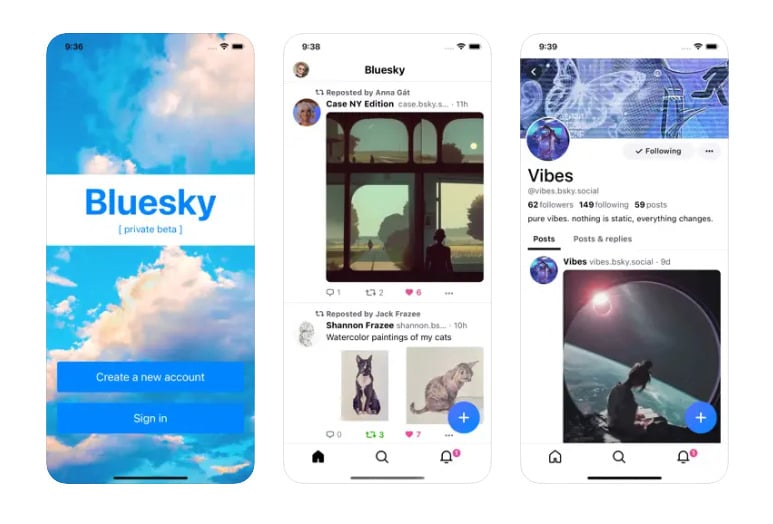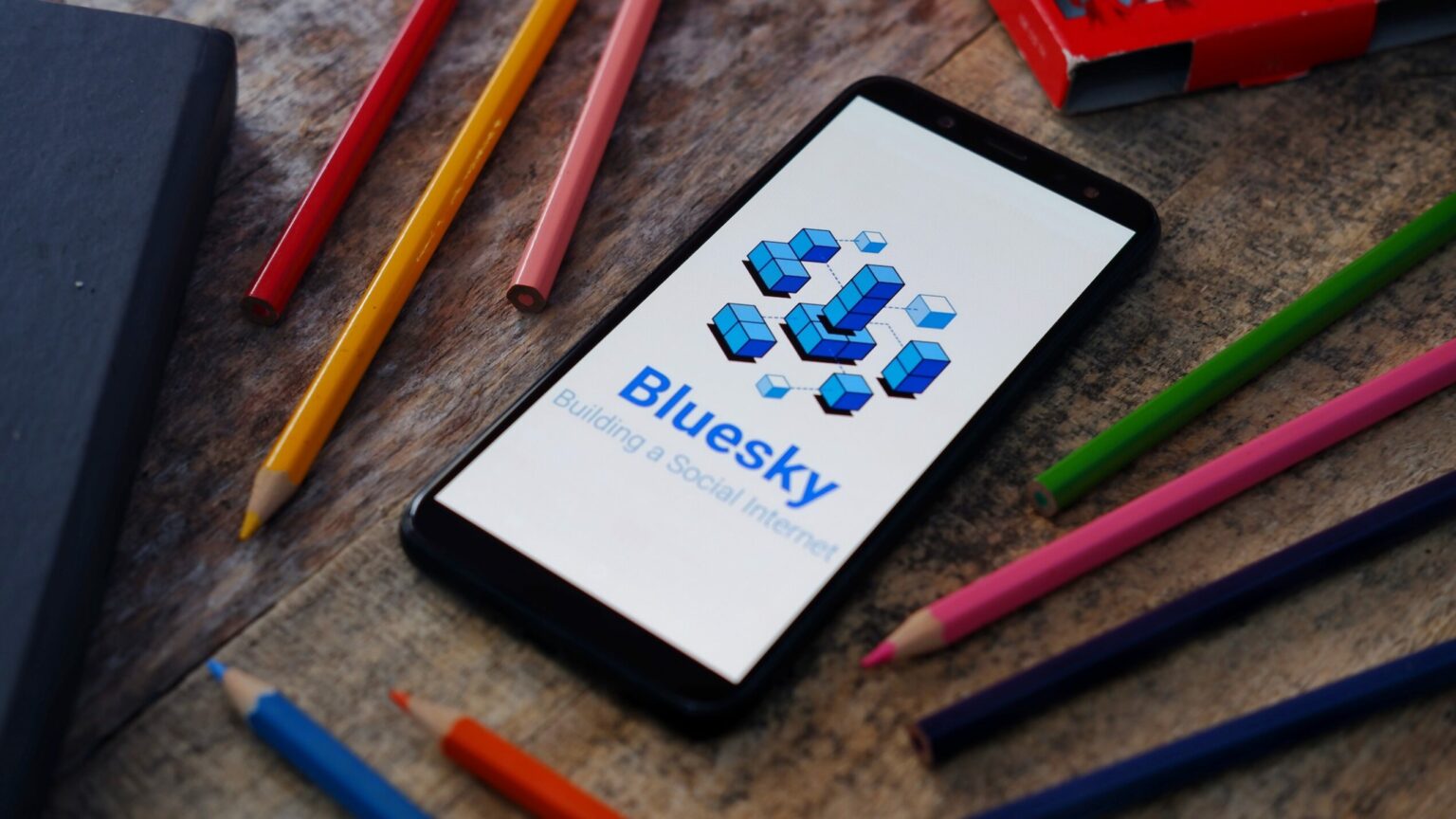Decentralized social media protocol Bluesky has been launched in beta. The Jack Dorsey-backed application, one of many apps considered an alternative to Twitter, is now available on the Apple App Store to a limited number of users.
The application amassed a quickfire 30,000 signups for its waitlist for the beta version within 48 hours of announcing the protocol in October 2022. Now the app is available for download in “private beta” – but users will need an invite code to create an account.
The World-Wide Web wouldn’t have been much fun if it was created without a browser, and the same is true of the AT Protocol. So we’re also building a Bluesky social app.
Join the waitlist at https://t.co/xjTBYE9oOJ
— bluesky (@bluesky) October 18, 2022
What is Bluesky?
Bluesky is building the Authenticated Transfer Protocol (AT Protocol), a new foundation for social networking which supposedly frees developers from corporate and government control. Large-scale distributed social applications can be built using the protocol.
The company received $13 million in funding for R&D last year, including from Twitter co-founder Jack Dorsey, who described it as “an open decentralized standard for social media.” Bluesky was originally incubated within Twitter since 2019 when Dorsey was CEO, according to industry media.
Also read:Elon Wants A Twitter For Everything, Pushes The Payments Button
It aims to create a protocol that grants users portability, scale, and trust, according to its website. Portability allows users to switch between apps without losing their data. Scale allows apps to handle more traffic. While trust prevents algorithms from profiling users.
A federated social network
While the likes of Twitter, Facebook, or Instagram are controlled by one central authority, Bluesky is installed on thousands of computer servers, largely run by volunteer administrators or businesses who join their systems together in a “federated network.”
“The AT Protocol is a new federated social network. It integrates ideas from the latest decentralized technologies into a simple, fast, and open network,” said Bluesky in a blog post.
For the most part, Bluesky – so named because of the “wide-open space of possibility” the word evokes – looks and feels just like Twitter, according to testers. The platform comes with similar hashtags, notifications and “retweets.”
TechCrunch reports that both apps have near identical user interfaces: the ability to view your feed, see other people’s updates, profile pictures, and other info that can already be found on Twitter. People on Bluesky can share, mute and block accounts.
Users create a handle and a name will be displayed prominently in bold text, as on Twitter. They can also create posts of up to 256 characters. While Twitter asks “What’s happening?” Bluesky’s take is, “What’s up?”
Dethroning Twitter

Bluesky is still a work-in-progress. Developers say the private beta App Store launch is meant to “iron out issues.” The latest version includes “bugfixes (including the follows/followers listing!) and some code preparing for a major protocol upgrade in the coming weeks.”
Since its debut on the App Store on Feb. 17, the Bluesky iOS application has been downloaded over 2,000 times, Tech Crunch said, quoting data from app intelligence company data.ai. The number likely indicates the newly added invite-only beta testers.
Bluesky joins a growing list of emerging decentralized social media networking apps promising to restore individual privacy and freedom of speech. The list of so-called Twitter alternatives includes Mastodon, Donald Trump’s Truth Social, Parler, Damus, Nostr and Cohost, among others.
Policing free speech
Over the years, key figures in crypto and web3 – entities predominantly on the receiving end of government intrusion – have either disapprovingly reassessed the monopoly of dominant social networks or started to delink their relationships.
The loss of confidence is symptomatic of the political entanglements of entrenched social platforms like Facebook or Google. Decentralized assets like Bitcoin and, by extension, decentralized social networks like Bluesky, aim to be on the right side of history.
Twitter's funding of Bluesky is not subject to any conditions except one: that Bluesky is to research and develop technologies that enable open and decentralized public conversation.
— bluesky (@bluesky) April 25, 2022
In a recent investigative article, The Intercept detailed how the US government is secretly working with leading tech companies to monitor and moderate content. The firms include Twitter, Facebook, Reddit, Discord, Wikipedia, Microsoft, LinkedIn and Verizon Media.
The plan is to filter out content the US Department of Homeland Security (DHS) considers “dangerous speech.” The report claimed the DHS is targeting “inaccurate information on the origins of the Covid-19 pandemic and the efficacy of Covid-19 vaccines.”
Interestingly, FBI chief Christopher Wray recently stated that the bureau’s position is that Covid-19 most likely originated in a Chinese government-controlled lab.
In George Orwell’s dystopian classic 1984 the secret police of the superstate of Oceania, known as the Thought Police, use many chilling methods to surveil citizens and crush dissent.
The secret police punish thoughtcrime, personal and political thoughts unapproved by the regime’s tyrannical leader, Big Brother. Likewise, Uncle Sam has weaponized social media to police free speech at the risk of flouting its First Amendment.









 and then
and then